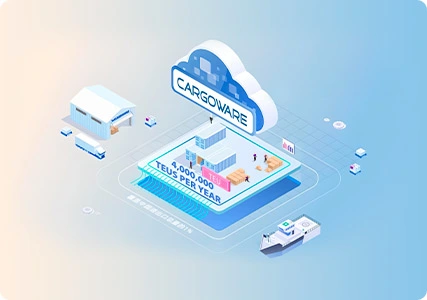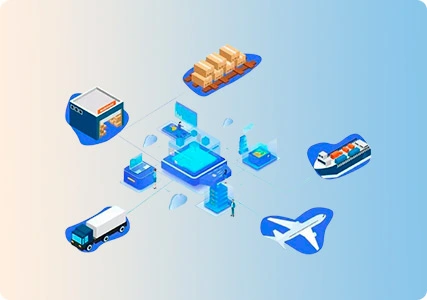
Digital transformation is a significant focus in the logistics industry. According to a survey, two-thirds (67%) of shipping and logistics firms have a formal digital transformation strategy in place to digitize their business processes actively. Another 31% are considering or evaluating such a plan, while only 3% have no digital transformation strategy. Among the respondents, shippers have the highest percentage (70%) of those with a digital transformation plan, followed by logistics service providers (64%) and carriers (57%). The most commonly cited obstacles to digital transformation are a shortage of skills and people (40%), followed by a legacy mindset and a lack of proof of return on investment.
Digital transformation impacts logistics and supply chains by leveraging digital technologies to enhance operational efficiency. Traditionally, companies have focused on cost reduction and profit improvement, often neglecting operational efficiency. However, in today's competitive landscape, operational efficiency is critical to success. Companies that can operate efficiently are more likely to succeed.
Digital technologies can improve operational efficiency in several ways, including:
1. Enterprise resource planning (ERP) systems that help companies manage their resources.
Manufacturing execution systems (MES) that assist in managing manufacturing operations by tracking production, scheduling tasks, and managing quality control.
Warehouse management systems (WMS) that facilitate warehouse operations by tracking inventory, managing orders, and issuing invoices.
Digital technologies also enable process automation, leading to increased efficiency and productivity. For example, companies can utilize Robotic Process Automation (RPA) to automate data processing and transactions, accelerating business processes and enhancing accuracy.
2. Greater Transparency and Visibility
Digital transformation in logistics and supply chains enhances transparency and visibility, enabling companies to make informed decisions. Real-time tracking of goods and materials within the supply chain allows companies to understand their location and estimated time of arrival, facilitating better decision-making regarding production and inventory management.
Digital technologies contribute to improved supply chain visibility through:
Radio-frequency identification (RFID) that tracks inventory, manages orders, and more using radio signals.
Global positioning system (GPS) technology that uses satellites to track objects such as vehicles and shipments.
Sensor data that captures attributes like temperature, humidity, and pressure of objects.
Integrating digital technologies into business processes empowers companies to monitor and identify inefficiencies and issues within their supply chains, enabling prompt resolution.
3. Improved Customer Experience
Meeting customer expectations and delivering a superior experience are essential to remain competitive. Companies prioritizing a great customer experience are more likely to succeed.
Digital technologies have had a significant impact on customer experience by enabling seamless and faster interactions between companies and customers, improving customer perceptions.
Digital technologies enhance the customer experience through:
Web and mobile apps that allow customers to interact with companies online or via mobile devices, including purchasing products and checking order statuses.
Social media platforms where customers can share their experiences with companies and fellow customers, such as on Facebook, Twitter, Yelp, and TripAdvisor.
Customer Relationship Management (CRM) systems that help manage customer interactions, including tracking customer data, managing contact information, and issuing invoices.
Additionally, digital technologies enable faster and more accurate customer service through the use of chatbots and AI-powered customer service solutions.
Digital technologies have revolutionized CX management, making it easier and faster for companies to manage the customer experience while improving customer loyalty and satisfaction.
4. Greater Agility and Flexibility
Digital technologies are essential for companies aiming to achieve greater agility and flexibility in their operations. By leveraging technologies like the cloud, companies can quickly scale up or down their operations as needed. Digital technologies also enable the creation of agile business processes, allowing companies to adapt swiftly to market changes and customer needs.









